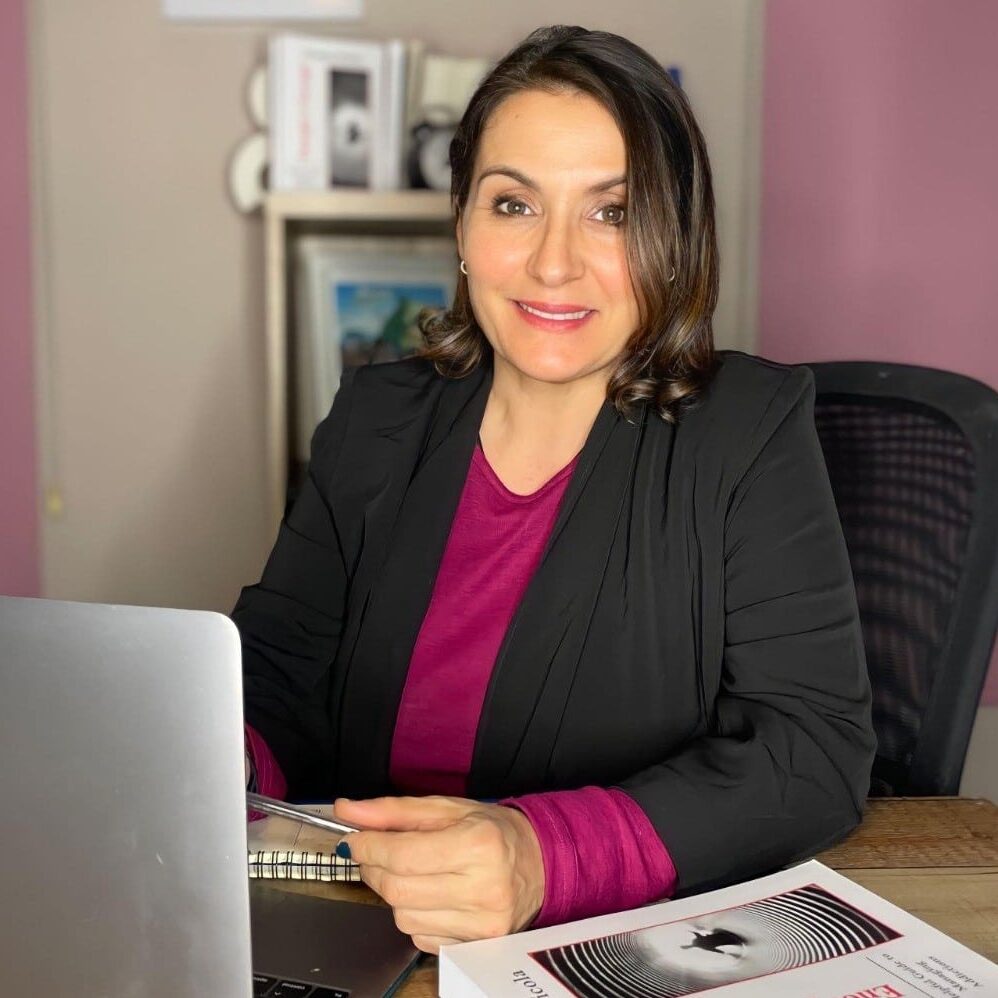A traumatic beginning
Jane’s transformation story began with a profound loss that changed her life forever. Years before her struggles with weight gain and negative habits, she faced the heart-wrenching reality of losing her partner to cancer. The loss was unexpected and devastating, leaving Jane emotionally shattered and struggling to cope.
This trauma triggered an overwhelming grief that permeated every aspect of her life. As she grappled with the painful void left behind, Jane turned to food for comfort. Sugary, high-carb snacks became her refuge, temporarily numbing the feelings of sadness and loneliness that consumed her. But this coping mechanism slowly spiralled out of control. Rather than dealing with her grief, Jane buried it beneath layers of emotional eating and self-neglect.
The loss of her partner became the root cause of her descent into unhealthy habits. She avoided confronting the unresolved pain, choosing instead to focus on anything that would distract her from the aching emptiness. For years, Jane did not fully realise how deeply her grief was controlling her behaviours, though it was always there, shaping her actions and decisions.
Understanding dependencies
As Jane began her healing journey, she started exploring why and how her dependencies had formed. One significant realisation was her reliance on certain foods – particularly those high in sugar and carbohydrates – to mask the emotional pain of losing her partner. She discovered that these foods triggered a sense of temporary comfort, creating a cycle of craving and overconsumption that deepened her emotional wounds.
The sweet snacks that Jane sought gave her fleeting bursts of happiness, but they never addressed the grief at her core. She found herself trapped in a cycle, using food to avoid the sorrow she carried. The emotional dependency on food was more than just a bad habit – it was a way to cope with her heartbreak.
Escaping temptation
Breaking free from temptation was harder than Jane anticipated. Her cravings for comfort weren’t just physical – they were deeply emotional. She struggled to disrupt the patterns of emotional eating that had become her norm. Jane had to learn how to be mindful of her triggers, especially when her grief resurfaced, making it difficult to resist the comfort foods she craved.
The limits of willpower
At first, Jane relied solely on willpower to fight her cravings and break her negative habits. However, the more she tried to resist, the more she found herself retreating to food for solace. It became clear that her emotional dependency was tied directly to the grief of losing her partner, a trauma she had not yet confronted. Food had become her way of avoiding this deep, unresolved sorrow, rather than facing it head on.
Seeking divine help
Realising that willpower alone was not enough, Jane turned to her faith for support. She sought strength and guidance through prayer, understanding that overcoming her struggles would require more than sheer determination. By inviting her spirituality into her journey, Jane found a peace she had been missing since her partner’s passing. This newfound faith allowed her to start the long process of grieving and healing, realising that food could not fill the emotional void.
Building discipline
With her faith as a foundation, Jane began to cultivate self-discipline. She stopped relying on food as an escape and took responsibility for her emotional wellbeing. Through her spiritual growth, Jane faced her grief, slowly working through the pain of losing her partner. She adopted healthier habits, including a balanced diet and mindful practices that helped her heal emotionally.
A remarkable transformation
Jane’s dedication led to a remarkable transformation. As she worked through her grief, she lost 18kg, not only shedding physical weight but also the emotional burden she had been carrying for years. The cravings that had once consumed her faded, replaced by healthier coping mechanisms. Her physical and emotional healing went hand-in-hand, revitalising her sense of self-worth and outlook on life.
Forgiveness and accountability
Part of Jane’s healing process involved forgiving herself for the years she spent relying on food to avoid her grief. She learned to be accountable for her actions, making peace with her past mistakes. This forgiveness allowed her to move forward with clarity and a sense of purpose, free from the guilt and emotional weight that had held her back.
Helping others
Jane’s journey of overcoming her emotional and physical challenges inspired her to help others facing similar struggles. By sharing her story, she became a beacon of hope for those dealing with grief, addiction and negative habits. She offered guidance and support, especially to those turning to food as a way to cope with emotional pain.
A fulfilled life
By the end of her journey, Jane had not only conquered her negative habits but had also created a more fulfilling life. She embraced balance, resilience and self-awareness, becoming an inspiration to others through her story of healing after loss.
Jane’s journey is a powerful reminder that even in the face of profound grief, transformation is possible. With determination, faith and the right tools, the emotional wounds from loss can heal, leading to a brighter, healthier future.







Click here to change your cookie preferences